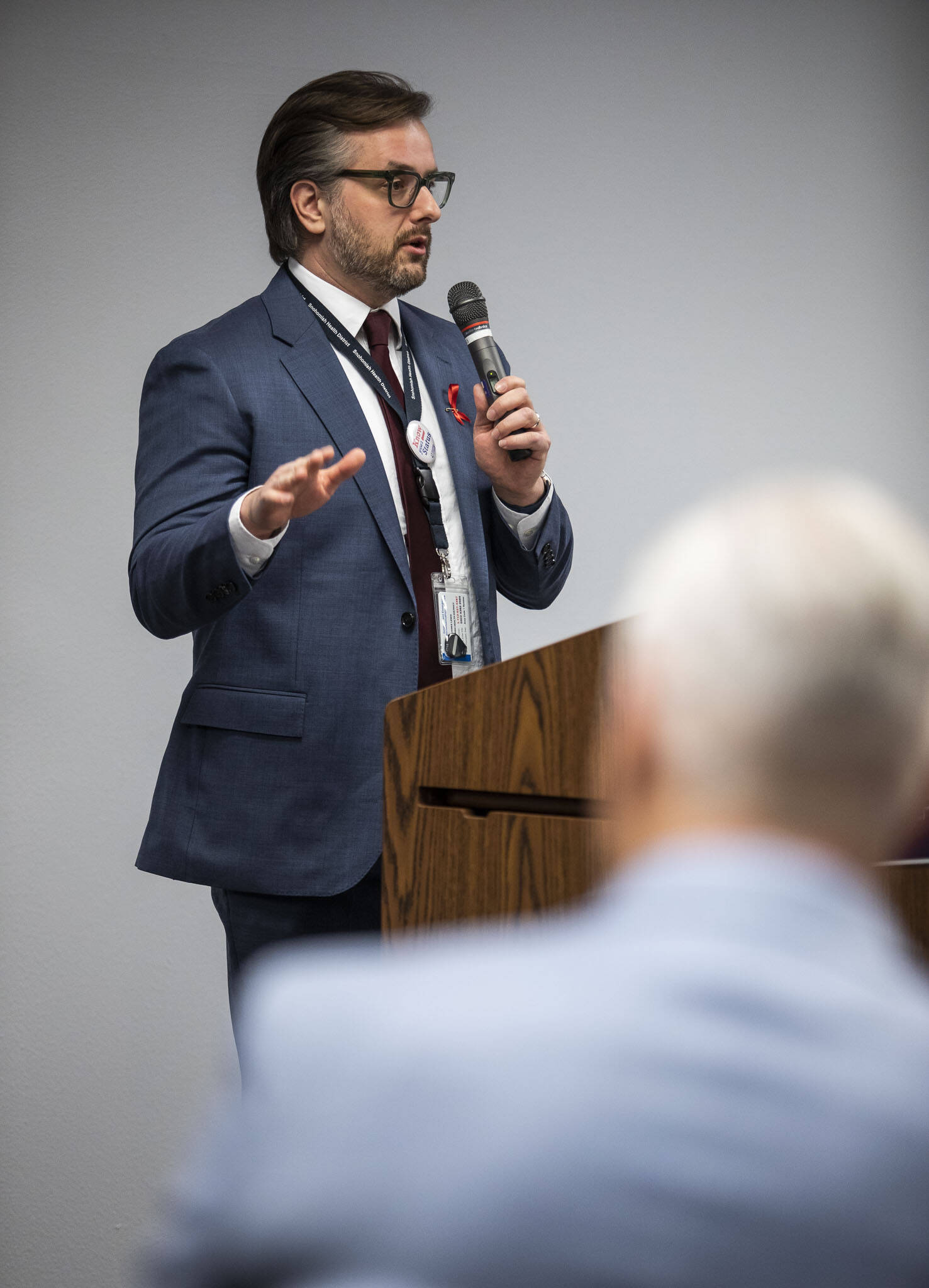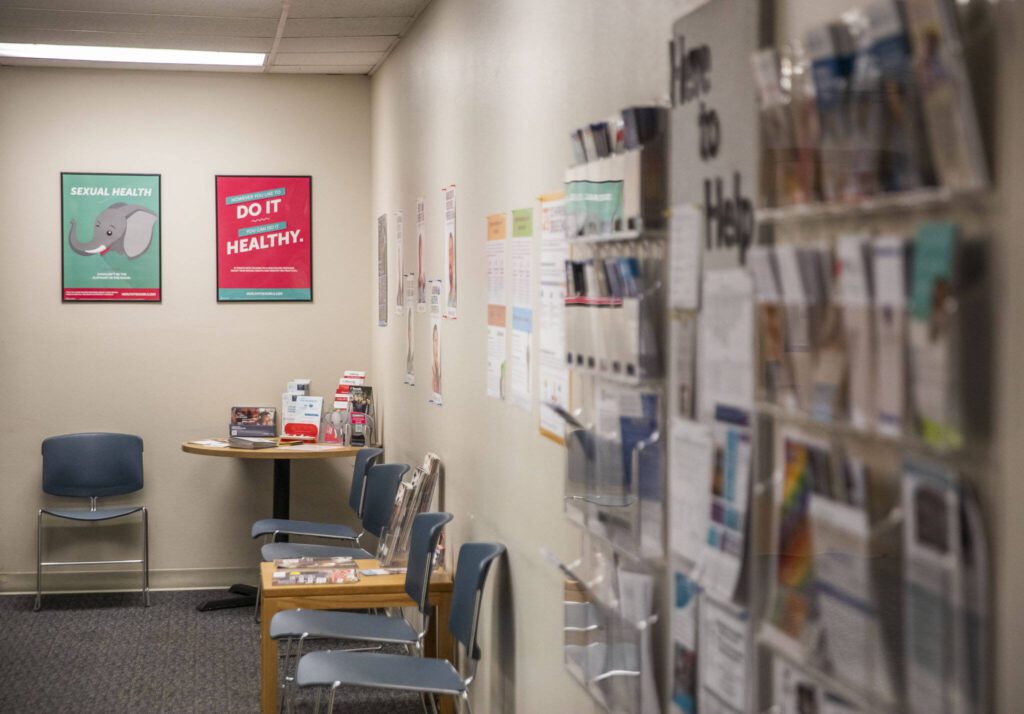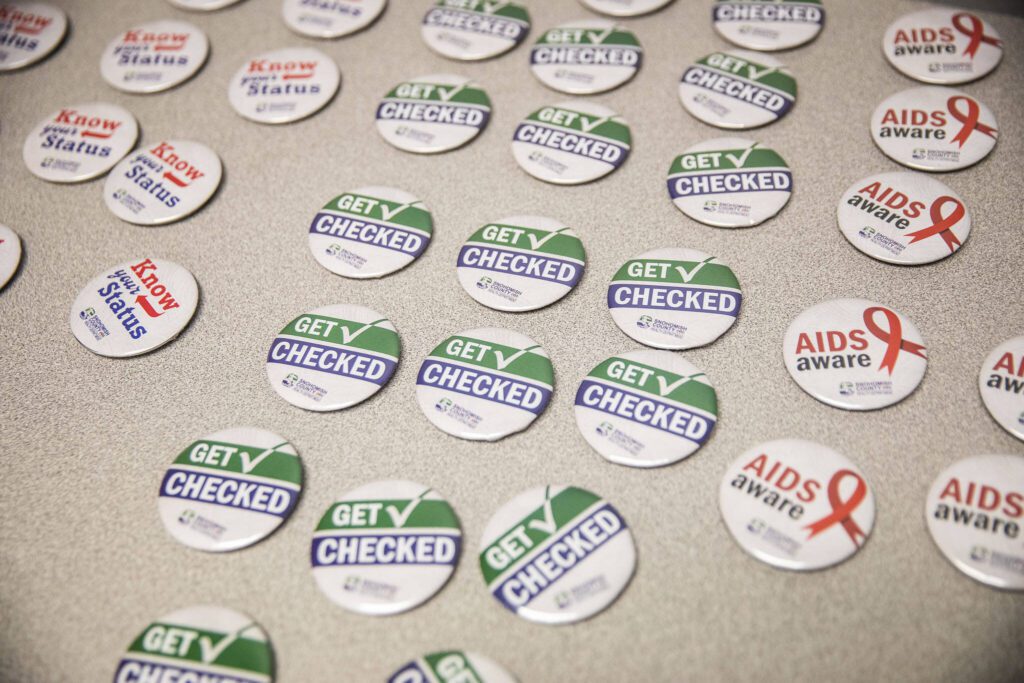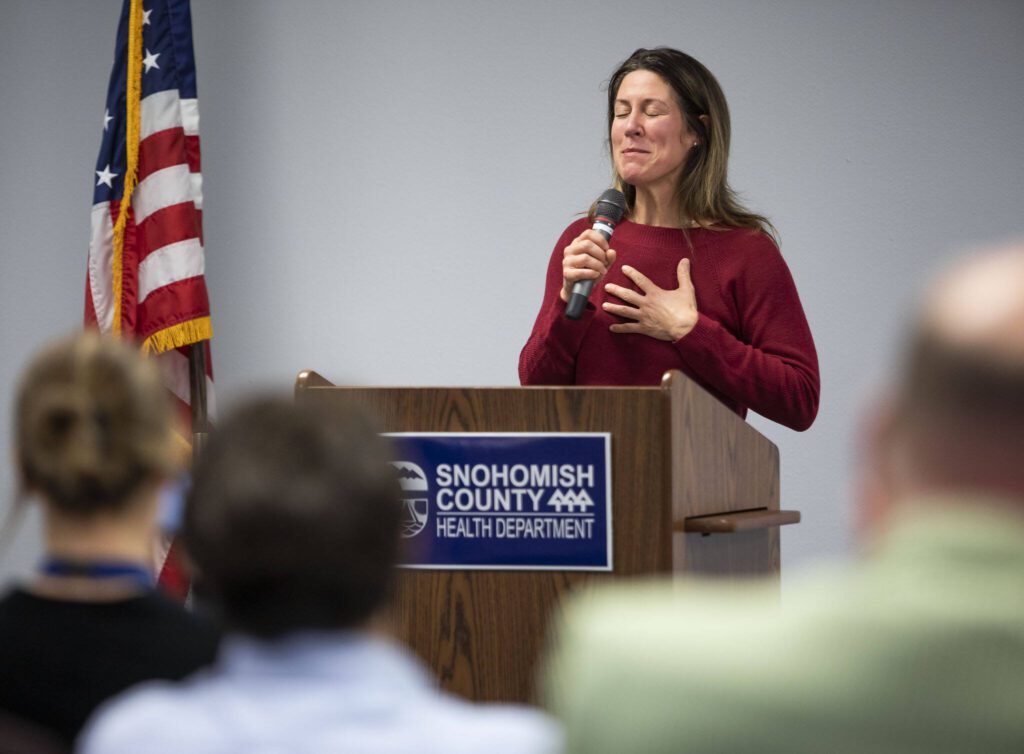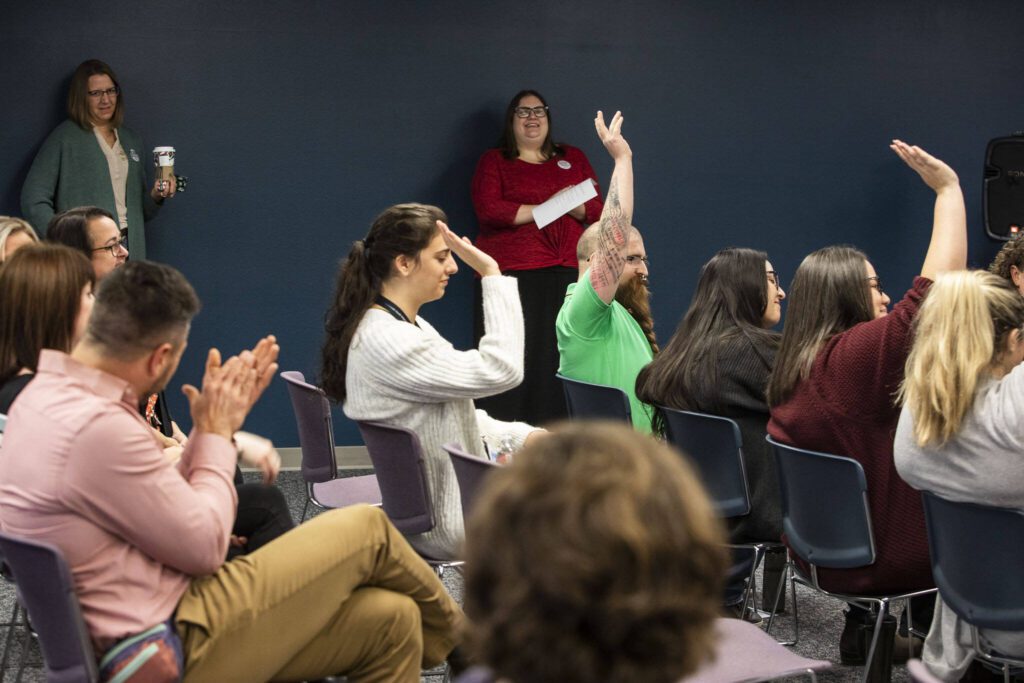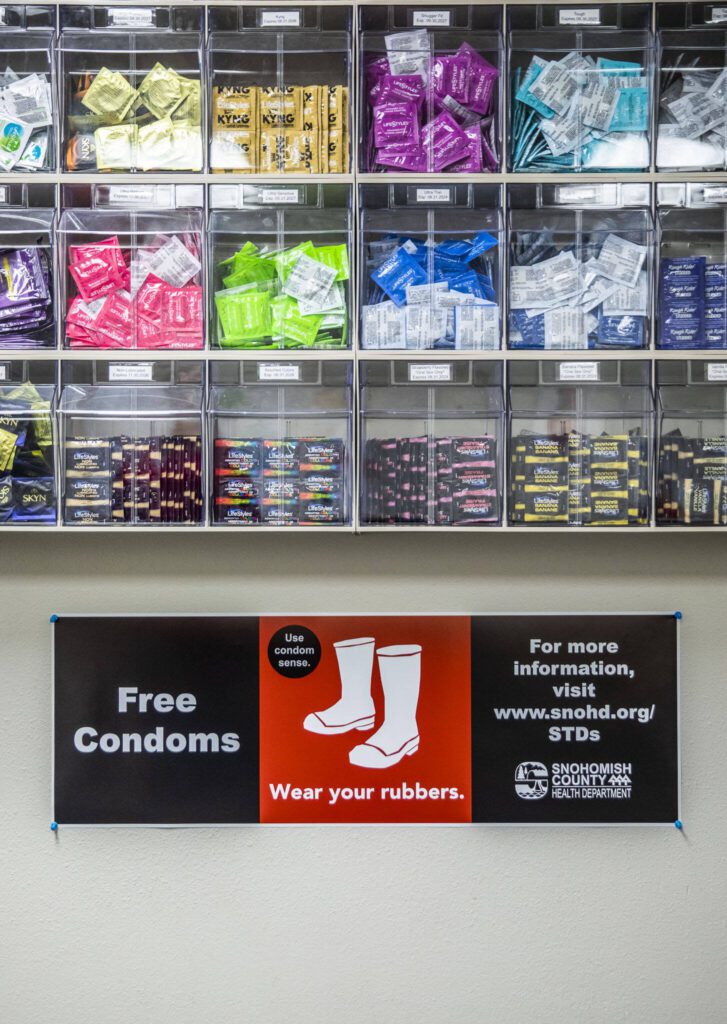EVERETT — For the first time in 14 years, Snohomish County has a clinic to provide free testing and treatment for sexually transmitted infections.
The county closed its long-running STI clinic in 2009 due to budget cuts. Now, nearly $1 million in state money has brought those in-house services back to Everett.
“We need to provide resources for prevention, and remove barriers so people can get access easily and where they are,” Dr. James Lewis, the county health officer, said at a celebration for the clinic Friday.
The revived clinic is located in the health department building at 3020 Rucker Ave. It provides free testing, treatment, education and case management to help reduce barriers for those in need, regardless of insurance status. While most cases are reported in Everett, the department hopes to expand services across the county to better reach at-risk rural populations.
Money for the clinic comes after a group of health care experts made recommendations in 2022 for controlling the state’s rise in STIs. Since 2015, Washington has seen an uptick in infections, including a 65% increase in gonorrhea, a 46% increase in hepatitis B and a 100% increase in syphilis. The state’s goals include eradicating hepatitis B and congenital syphilis, or fetal illness from untreated syphilis in pregnant people, by 2030.
Back in 2009, government-funded direct health services shrank as the Affordable Care Act promised more patients would be connected to primary care physicians. When those clinics went away, STI cases increased, said Dennis Worsham, health department director for Snohomish County.
Since the county’s clinic closed, the case rate for gonorrhea more than quadrupled. Overall, the county’s reported STI cases nearly doubled from 2019 to 2022.
Most notably, the county has seen a sharp increase in syphilis. As of 2022, syphilis case rates were 11 times higher than when the clinic closed. Early-stage syphilis rates have doubled since 2019. After five years of zero cases, congenital syphilis is also on the rise.
These numbers are “alarming,” Lewis said.
Reports of HIV are steady, with 41 cases reported last year. But it wasn’t always that way.
Worsham, one of the first openly gay men to work for the health department, saw the county through an HIV and AIDS crisis 30 years ago.
“Every week, there was someone who died here in Snohomish County,” he said Friday, a day also recognzied as World AIDS Day. “It’s important to have a place with low barriers where people can come, be safe, be who they are and really talk about what services they need.”
The clinic’s return was an emotional moment for county Executive Dave Somers. His younger brother, who died of a fentanyl overdose last year, was HIV- and hepatitis C-positive.
“He relied on folks like you for help,” Somers told clinic workers Friday. “I’m grateful, and understand the importance of the services you provide to communities that otherwise would not have access.”
The county has seen a gap in “wraparound” STI services for a long time, said Dr. Ryan Keay, an emergency physician in Everett.
“It is a challenge seeing a patient and then sending him into the void with the hope of followup and care,” she said.
Before the clinic’s revival, the health department provided some services, such as limited HIV tests and connections to other sexual health resources. Ruben Herrera, a disease intervention specialist at the department who follows up with people who have positive test results, said he worked on a team of four when he was hired in 2017. Now, the clinic has a team of 10, including a nurse.
“We’re very excited,” he said.
The state has provided enough money to run the clinic for two years. The health department plans to partner with lawmakers and create a data report on its care efforts to help secure more money in the future.
STI prevention
The new clinic is located at 3020 Rucker Ave. Suite 100, in the Snohomish County Health Department building. Appointments are recommended but not required. Appointments can be made by calling the clinic at 425-339-5261.
Testing is the only way to be sure of an STI. It’s possible to get or give an infection without ever having symptoms. Routine screening is vital to treat infections early — untreated infections can be life-threatening and increase the likelihood of contracting other diseases such as HIV. If someone is infected with chlamydia or gonorrhea, Expedited Partner Therapy provides immediate treatment for their partners without the need for testing.
To prevent the spread of STIs, the county health department recommends:
• Routine testing for those who are sexually active;
• Limiting the number of sexual partners;
• Talking to partners about sexual health history;
• Using condoms, clean needles and syringes;
• Alerting partners if symptoms arise and ceasing sex until tested;
• And following through with treatment after a positive STI screening.
Sydney Jackson: 425-339-3430; sydney.jackson@heraldnet.com; Twitter: @_sydneyajackson.
Talk to us
> Give us your news tips.
> Send us a letter to the editor.
> More Herald contact information.
